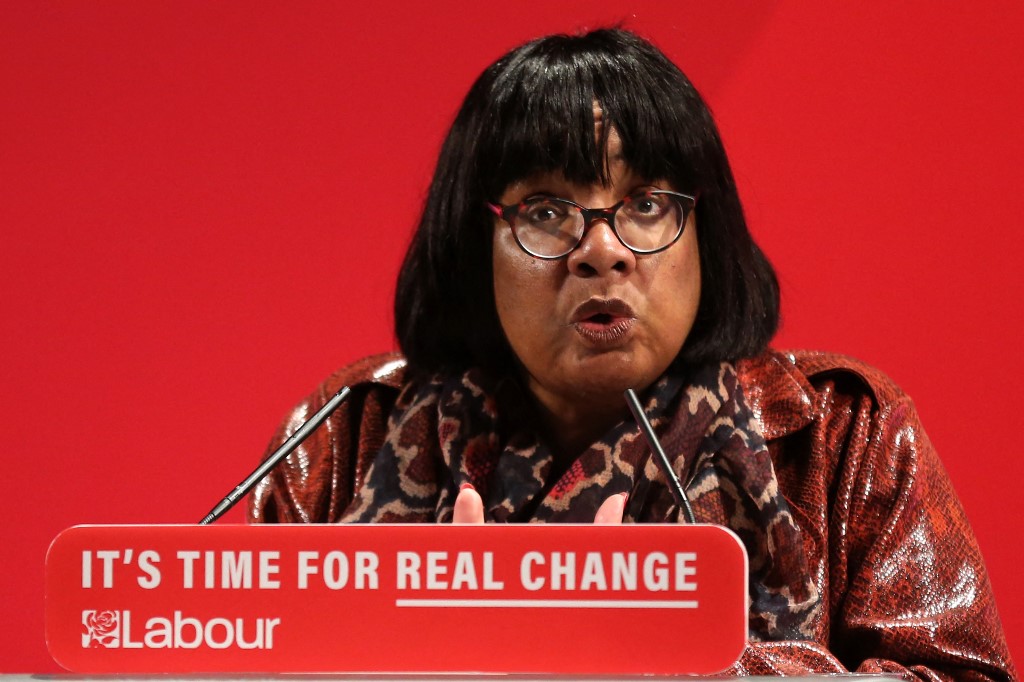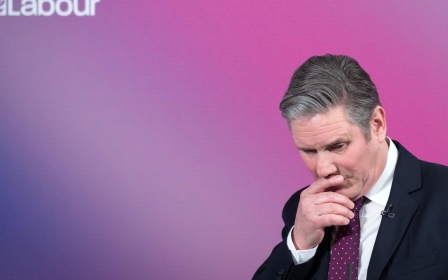Labour antisemitism witch hunt: Why my advocacy for Palestine was silenced

When activism for Palestine was growing in Britain in the 1970s, we Palestinians were clear that our adversaries were the Zionists. We strove to counter their propaganda and promote our story. Never did we dream in those days that, 50 years later, our adversaries would include members of the British Labour Party.
Looking back, I remember how hard it was to put forward our case. Israel’s resounding victory in the 1967 Arab-Israeli war filled its followers with overwhelming self-confidence. Vociferous praise for Israel was the norm at public meetings, and we faced heckling and jeers from Zionist supporters who flooded in to disrupt our speeches, sometimes forcing us to end the meetings. I can still feel the burning frustration of being silenced by those bullies.
It felt like a slap in the face. I might just as well have been strong-armed to the door and pushed outside
Much has changed since then. Israel’s violations of international law have been repeatedly condemned, and the Palestinian narrative has been allowed to come through. The Labour Party, predominantly pro-Israel throughout its history, began to change its policy in the 1980s following the right-wing Begin administration and the Israeli-coordinated Sabra and Shatila massacres. It became more favourable towards Palestinians, a shift that lasted for several decades, culminating in the 2015 election of Jeremy Corbyn as leader.
If Corbyn, a committed supporter of Palestinian rights, had become Britain’s prime minister it would have been a spectacular turnaround in Palestinian fortunes, with profound consequences for European policy on Palestine and the course of the Israeli-Palestinian conflict.
But that did not happen, and since Corbyn’s replacement last year by Keir Starmer, the party has reverted to its traditional pro-Israel position - only more so - and become increasingly hostile territory for Palestinians and their supporters. Exactly how hostile, I was to learn recently through a disturbing experience.
Regrettable policies
At the time, I still thought of the party of which I had been a member since 1986 as a relatively congenial place for Palestinians, and the best to be had in a country whose governments had helped create Israel and consistently supported it ever since.
I had been invited by the Hackney North Constituency Labour Party (CLP) to speak on Palestine. This CLP has a left-wing reputation and is represented by Diane Abbott, a socialist and Corbyn loyalist with a record of pro-Palestinian support. Accepting the invitation, I felt I would be among friends, and free to put my views across.
No one had specified the particular Palestinian topic that I was to address, so I spoke about what I considered of concern to a Labour constituency. It was not the Palestine “over there” that I would talk about, I said, but the one “over here” and currently under attack.
I described the regrettable policies of the party under Starmer, weaponising antisemitism against Palestinians and critics of Israel, and how that has led to the silencing of discourse about Palestinian rights. It was immoral to side with the oppressor against the oppressed, I asserted.
I had spoken for perhaps five or six minutes when the chair of the CLP, visibly shaken, cut me short. She said my talk was not what had been expected, and she must end it. It was a Zoom meeting, and her agitation was such that I feared she would immediately shut down the connection. She thanked me hastily, and was clearly desperate to get rid of me.
It felt like a slap in the face. I might just as well have been strong-armed to the door and pushed outside. It took me straight back to the 1970s, and those Zionist stooges who used to shut down our meetings.
Afterwards, some CLP members explained privately that, although there was much sympathy for my position, they had to be careful not to show it. They said Hackney North was under surveillance from party headquarters and had been threatened with suspension. They asked me not to lodge a formal complaint about how I had been treated, because greater priorities were at stake.
Zionist influence
A reporter from Jewish News was in the audience and sent my speech to Labour headquarters for comment. This was against CLP rules, but as far as I know, no one confronted him on it. His pejorative account of the event appeared in the next day’s paper.
The CLP chair never apologised to me, and presumably didn’t think she had to.
To me, this incident speaks volumes about Labour’s failure to understand Zionism from the start - about anti-Palestinianism and the nature of censorship. The party’s support for the Zionist movement was historically based on an affinity with Labour Zionism’s social-democratic policies, especially the socialist kibbutz movement. It led to the Poale Zion Marxist wing of the Zionist movement being affiliated to the British Labour Party in the early 20th century, and since 2004, its successor, the Jewish Labour Movement, has wielded great influence over the party.
No matter how politically attractive to British socialists Labour Zionism might have seemed, it was being practised in a stolen country extorted from its native inhabitants through ethnic cleansing. Even if Israel was a paragon of socialism, this would still be irrelevant to that basic fact. The supporters of Palestine fully understand this point, and cannot support Israel because of it.
The antisemitism witch hunt against Labour members, including many pro-Palestinian Jewish members, the suppression of Palestinian speech, and the self-censorship of local parties such as Hackney North for fear of breaching censorship rules, are all consequences of Labour’s flawed thinking on Israel-Palestine. This should have been corrected long ago.
It’s time for the party to ditch that error, recognise that supporting an apartheid, racist and oppressive state is a betrayal of Labour values, and welcome the people of integrity it expelled back into the Labour fold.
The views expressed in this article belong to the author and do not necessarily reflect the editorial policy of Middle East Eye.
Middle East Eye propose une couverture et une analyse indépendantes et incomparables du Moyen-Orient, de l’Afrique du Nord et d’autres régions du monde. Pour en savoir plus sur la reprise de ce contenu et les frais qui s’appliquent, veuillez remplir ce formulaire [en anglais]. Pour en savoir plus sur MEE, cliquez ici [en anglais].







